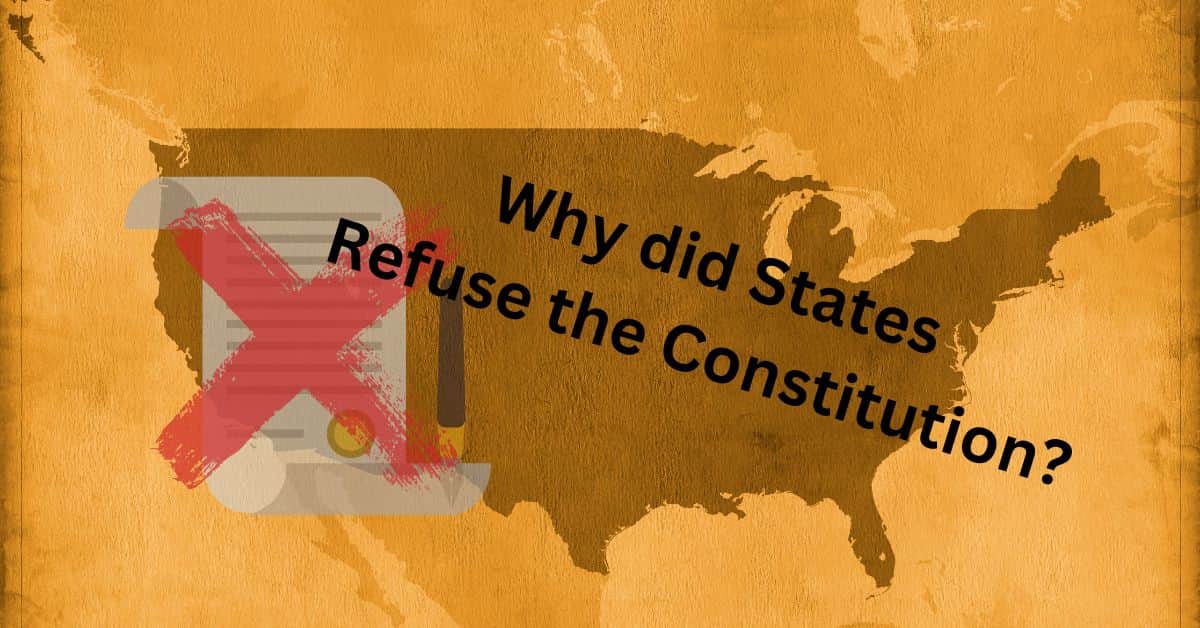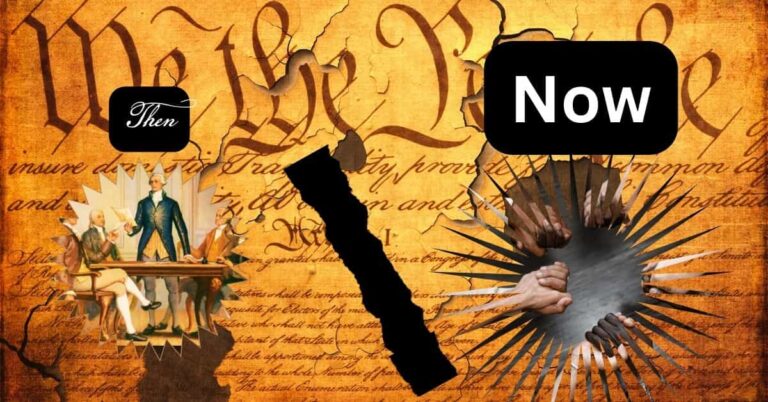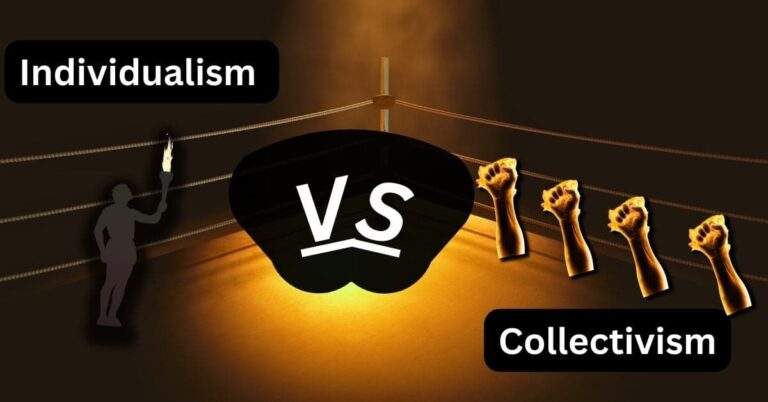How have you vocalized your concern when you didn’t like something? Were you rude, mean, or short with the people involved? During the Constitutional Convention of 1787, a strong vocal minority called the Anti-Federalists slowed the adoption of the Constitution. The Federalists considered the Anti-Federalists unhinged causing strong debates in that small Philadelphia room.
Representatives of many states refused the Constitution’s adoption for not preserving liberty and centralizing authority. States wanted to keep their individuality. A big central government meant no local representation. Anti-Federalists lived by the motto of “governments close to the people.”
I have broken up this post into separate parts. One section includes a set of broad reasons why the states refused the Constitution. Another is a specific set of reasons. Both are full of knowledge. Continue to explore below!
“We know that private interest governs mankind generally. Power belongs originally to the people; but if rulers be not well guarded, that power may be usurped from them. People ought to be cautious in giving away power.”
William Goudy of North Carolina
Broad Reasons States Refused the Constitution
There is an entire set of Anti-Federalist Papers to read if you wanted more specific tips. You can read the titles of the headers to understand a general sense of why some states refused. I’m here to give you the “Cliff Notes” version.
To provide a bit of clarity on the terminology used in this post, I’ll briefly describe the difference between a Federalist and an Anti-Federalist.
- Federalists- wanted to ratify the Constitution
- Anti-Federalists- opposed ratification of the Constitution
The Anti-Federalists and the Federalists fought for states’ votes to ratify the Constitution.
Next, you will find the broad reasons listed below:
Didn’t Preserve Liberty
Who has your best interest?
Yes, I know that is a loaded question. You obviously have your own self-interest.
The states viewed handing over any power to a Federal government as not preserving liberty. They wanted to have their own self-interest by keeping government local.
For example, Virginia protects its liberty the best.
Their fear of losing local control meant an abrupt end to their quality of life. In those days, you were a Virginian or a citizen of your state- not the United States. It takes time and longevity for culture to form.
Centralizing Authority
Preserving liberty and centralizing authority are connected. Losing liberty will happen when power is consolidated.
Would citizens lose their hard-earned liberties (rights) by having a strong central government?
The Constitution granted powers to all different branches. This power division resembled England’s tyrannical government. Anti-Federalists dreaded monarchy and hated even the thought of it. The term President meant “evil monarchy.”
Patrick Henry became an avid Anti-Federalist.
He said: “When I come to examine these features, Sir, they appear to me horridly frightful: Among other deformities, it has an awful squinting; it squints towards monarchy .. . Your President may easily become King …”
Patrick Henry
He developed as a vocal advocate for the people too afraid of speaking up. A new monarch controlling power from Washington D.C. derailed any hopes of liberty.
Also, the legislative branch lacked term limits and frequent elections. Senators elected every 6 years sounded too infrequent. Terms of 4 years appeared better to the Anti-Federalists.
Long-term politicians participate in self-aggrandizing behavior. If at a buffet, they will enrich themselves with every dessert available. They grow fat and are hard to remove from office.
Without frequent rotation of political office, the average citizen lacks the opportunity to enter politics.
To summarize, centralizing power degraded liberty for the Anti-Federalists. A government “close to the people” meant local is better than federal.
No Single Anti-Federalist Positions
Unity equals power when trying to implement strong resistance to change.
The Anti-Federalists failed to organize strong enough “to fight the good fight.” You must have cohesive arguments and strong messaging to succeed.
Most of you didn’t know The Anti-Federalist Papers existed. I never heard of them growing up. They are a set of articles written from the perspective of states that didn’t want the Constitution. Their message isn’t even heard today.
Furthermore, they couldn’t agree on how the senators should be elected. Was it better to have them elected by state legislatures or by direct vote of the people?
Even more, how was the President to be elected?
That’s a couple of examples of the disorganized Anti-Federalists
Specific Reasons States Refused the Constitution
We will move to more specific reasons.
Lacked a Bill of Rights
We all know the constitutional amendments known as the Bill of Rights. You can thank the Anti-Federalists for an actual list of these precious rights printed in ink.
Writers of the Constitution didn’t see a need for these amendments. Rights were already included in the text. Why spell out the obvious?
If you don’t know what a constitutional amendment is, LEARN MORE by reading my article.
The Anti-Federalists foresaw the intent of future tyrants if these rights had not been listed.
Power to Tax
What’s the Federal budget today?
There isn’t one because Congress raises the debt ceiling when they need money. They print more money since they control it.
In plain English, governments tax and spend as much money as they can collect. If they collect $4 trillion, they spend over $5 trillion.
While the government today raises the debt ceiling, 18th-century governments favored sending the army to your door.
How would that dialogue go?
Knock, knock, knock (on the door)
Soldier: “Sir, I’m here to collect your taxes.”
Citizen: “Man, I don’t have them. Sorry, I can’t afford to pay the government’s bill today. I’ll sign and give you an IOU. That’s just as good as money.”
Soldier: “I’m afraid that isn’t going to work, and I must collect payment today. If you don’t have the money, I’m going to have to take you to prison.”
Citizen arrested and taken to prison
You could oust many political opponents with ever-increasing taxes by taking debtors to prison.
Government has a monopoly on force. The Federal government could’ve sent the army to individual states who failed to pay their taxes.
An Anti-Federalist known as Abraham White predicted how the above scenario went:
“Congress with the purse-strings in their hands, will use the sword with a witness.” Abraham White
Abraham White
The American Revolution’s rallying cry was “taxation without representation.” Consolidating the power to tax threatened liberty.
Standing Army
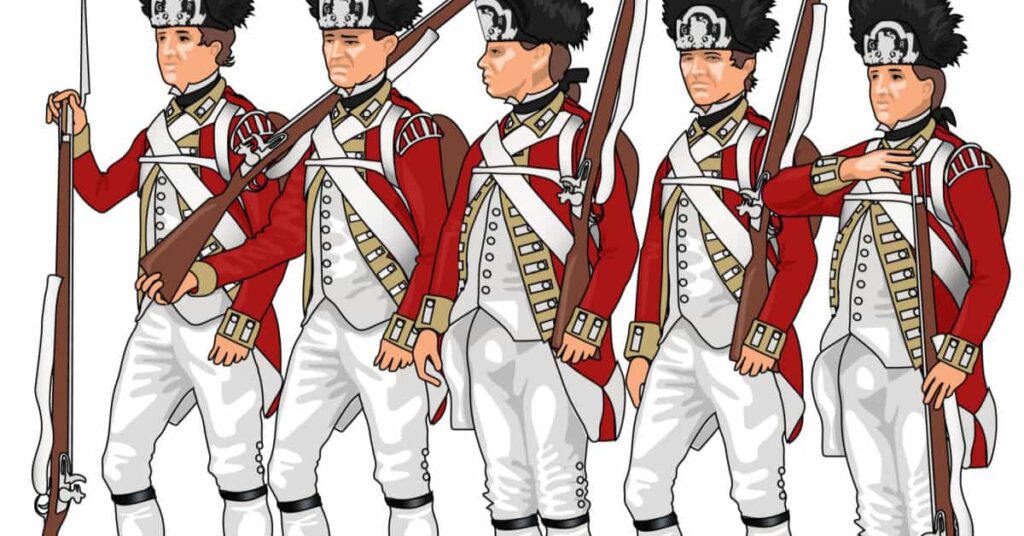
Armies are meant for the following:
- Deter foreign enemies
- Protect citizens in the event of foreign invasion
Anti-Federalists’ reasons against a standing army:
- Be the president’s personal goon squad on individual citizens
You don’t have to look too far to see an example of this. England’s army terrorized the Massachusetts countryside at the start of the American Revolution. The army succeeded in being the King’s personal goon squad.
- Enforce collection of unpaid taxes by states
Ever heard of the Boston Tea Party? That’s related to taxes. The English army was part of enforcing the aftermath of not collecting those tea taxes.
- Modern military-industrial complex (being the world’s police)
England developed a large colonial empire stretching to parts of Asia and Africa. They were the world’s police until the decline of colonialism.
- Fear of unarmed citizens being left vulnerable
While numerous citizens participated in the local militia, unarmed civilians did not. Standing armies threatened the unarmed civilians since they would be at the soldier’s mercy.
Revolutions and Turmoil
Would the change in the Constitution lead to a more or less stable republic?
Replacing the government generated anxiety among Americans. No one knew the future. Federalists -like Alexander Hamilton- authored articles proclaiming the grandeur of the new constitution. Alexander Hamilton dreamt of expansionism via military intervention. This led to uneasiness and rumors of revolution.
Would the United States nation-build and be a perpetual war if the Federalists succeeded?
Illegal Constitution
Anti-Federalists contested the legal framework for instating a new constitution.
The original intent of the 1787 Constitutional Convention was to change the existing Articles of Confederation. No one believed they wanted to create an entirely new document for running the government. Thus, Anti-Federalists believed the new Constitution not to be legal.
Framers conducted the meetings of 1787 in secret. This secrecy didn’t alleviate the public’s worries.
Conspiracy theories emerged:
- “What’s going on in Philadelphia?”
- “Are they planning a secret military operation to reinstate a monarchy?”
You can imagine more conspiracy theories and fill in the blank.
Federalists needed to justify the legal framework and ease the rumors to pass what is now our Constitution.
Aristocratic
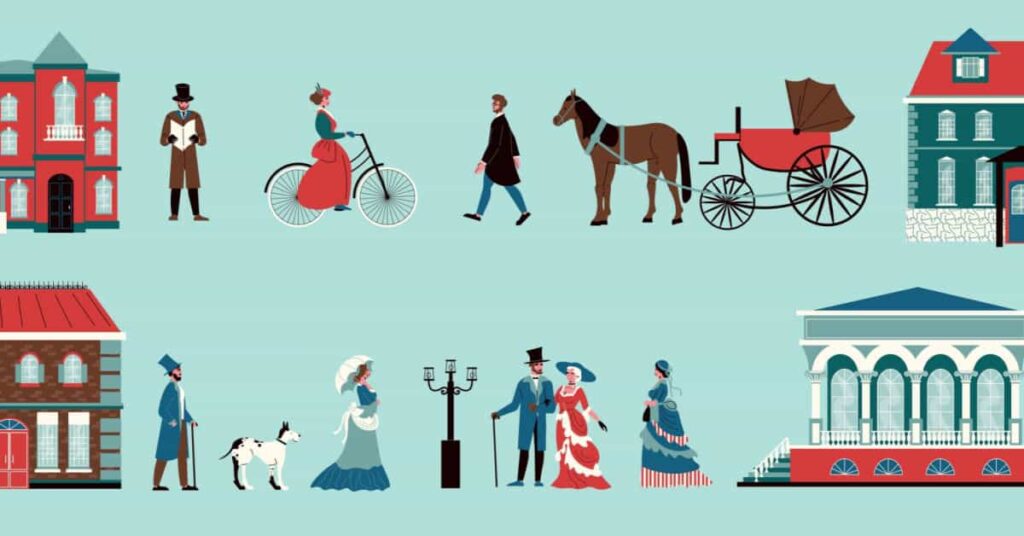
Above I mentioned a conspiracy theory about reinstating the monarchy.
This monarchy theory led to a whole movement about the Constitution being a document only to benefit the rich and wealthy elite. They called it “aristocratic” while we call it the “1%”. 1% refers to the top income earners in the U.S.
Talking about this conspiracy theory in public garnered shame. You didn’t discuss among acquaintances.
A part of it included Alexander Hamilton wanting to create a financial elite. During the Revolutionary War, Americans remember tyrannical royal governors. Those governors represented the financial elite.
“The natural Course of Power is to make the many Slaves to the few.” William Findley- an Anti-Federalist representing Pennsylvania.
William Findley-an Anti-Federalist representing Pennsylvania
Mr. Findley-a vocal opponent- said what others couldn’t. Bless those that have courage!
Slavery
Northern and Southern Anti-Federalists differed on what they wanted to do with the slavery issue.
Would they keep slaves or abolish slavery in the new document?
Many anti-slavery organizations existed during the Revolutionary War era. One prominent organization was the Pennsylvania Abolition Society. Ben Franklin ended up being one of the first presidents of this society.
States’ Ratification
Below you will find a table of the dates and numbers who voted for ratification.
9 states needed to approve the new constitution. Many states postponed their votes and did not ratify until after the new government had been established.
Ratification of the Constitution
|
State |
Convention |
Date of Ratification |
vote |
|
Delaware |
3–7 December 1787 |
7 December 1787 |
30-0 |
|
Pennsylvania |
20 November–15 December 1787 |
12 December 1787 |
46-23 |
|
New Jersey |
11–20 December 1787 |
18 December 1787 |
38-0 |
|
Georgia |
25 December 1787–5 January 1788 |
31 December 1787 |
26-0 |
|
Connecticut |
3–9 January 1788 |
9 January 1788 |
128-40 |
|
Massachusetts |
9 January–7 February 1788 |
6 February 1788 |
187-168 |
|
Maryland |
21–29 April 1788 |
26 April 1788 |
63-11 |
|
South Carolina |
12–24 May 1788 |
23 May 1788 |
149-73 |
|
New Hampshire |
13–22 February 1788 (1st session) |
21 June 1788 |
57-47 |
|
Virginia |
2–27 June 1788 |
25 June 1788 |
89-79 |
|
New York |
17 June–26 July 1788 |
26 July 1788 |
30-27 |
|
North Carolina |
21 July–4 August 1788 (1st convention) |
2 August 1788 |
75-193 |
|
Rhode Island |
1–6 March 1790 (1st session) |
29 May 1790 |
34-32 |
|
Vermont |
6-10 January 1791 |
10 January 1791 |
105-4 |
Source: University of Wisconsin-Madison-Center for the Study of the American Constitution
Conclusion
States refused the Constitution for a myriad of personal to philosophical reasons. Personally, the states did not want to relinquish their power to a federal government. Philosophically, they opposed centralizing authority in one place. Government belonged in the hands of local citizens- not bureaucrats.
Anti-Federalists wanted a list of rights guaranteed to every citizen. They did not want tyranny to influence future generations due to their lack of planning. Standing armies and taxes spread tyranny if you used by the wrong people.
To some, the Constitution seemed like an aristocratic document only enriching the elites. Also, slavery didn’t end with its adoption.
In the end, the Federalists defeated the Anti-Federalists with Vermont being the final state to vote for ratification. Rhode Island and North Carolina became some of the most vocal states against the Constitution. They needed to meet twice before representatives ratified it. Rhode Island wanted to print its own money. North Carolina’s economic situation deteriorated because of a post-war depression, money shortages, and difficulty paying debts.
What would be the problems raised today if adopting a new constitution? Which states do you think would give the most trouble?
J. Liberty
And more problems persisted among the debates at the Constitutional Convention. LEARN MORE about the heated issues and problems in Philadelphia.
Print Source:
Main, J. T. (1961). The Antifederalists: Critics of the Constitution. United States: The University of North Carolina Press.
